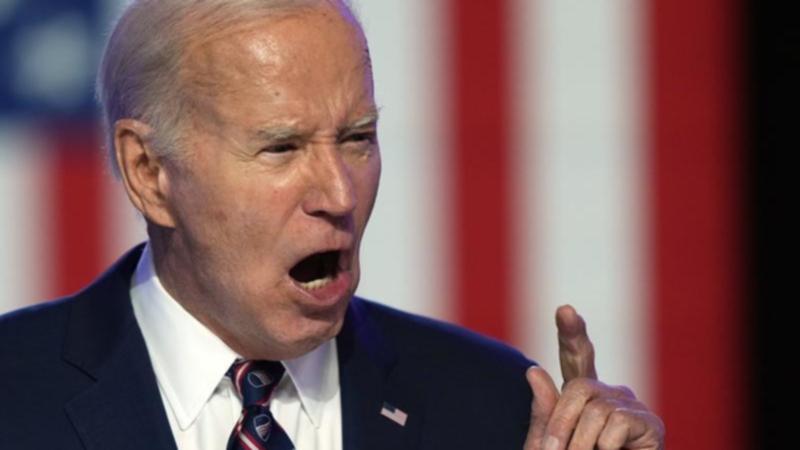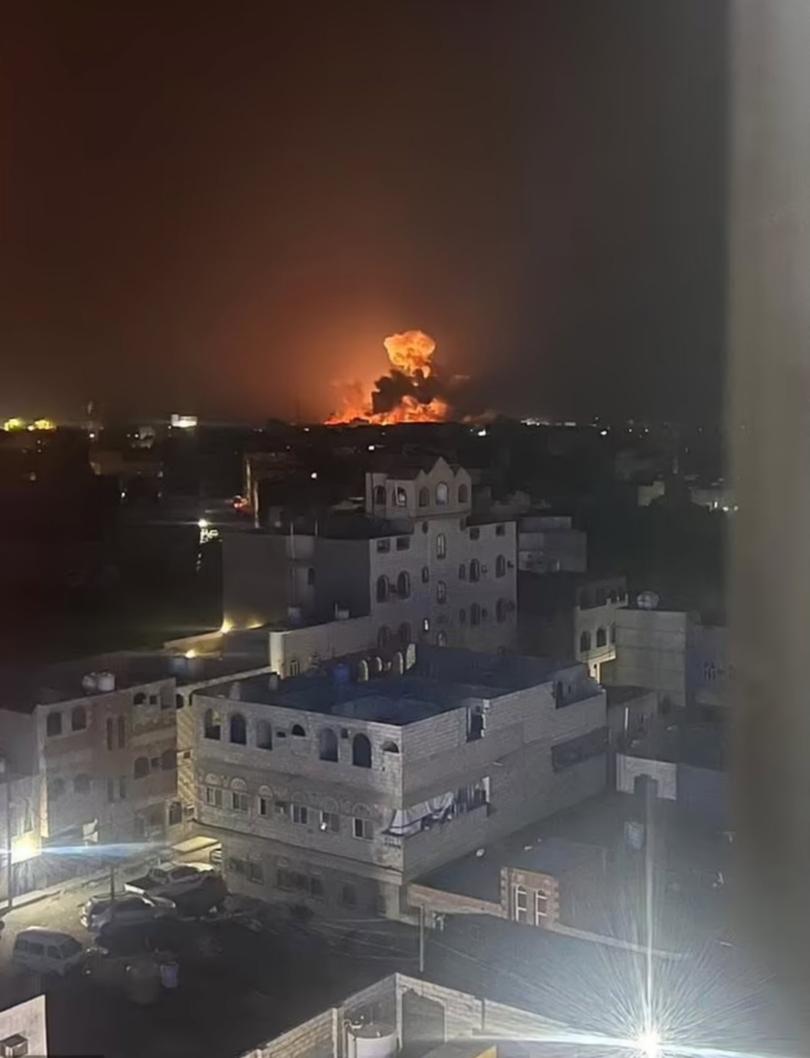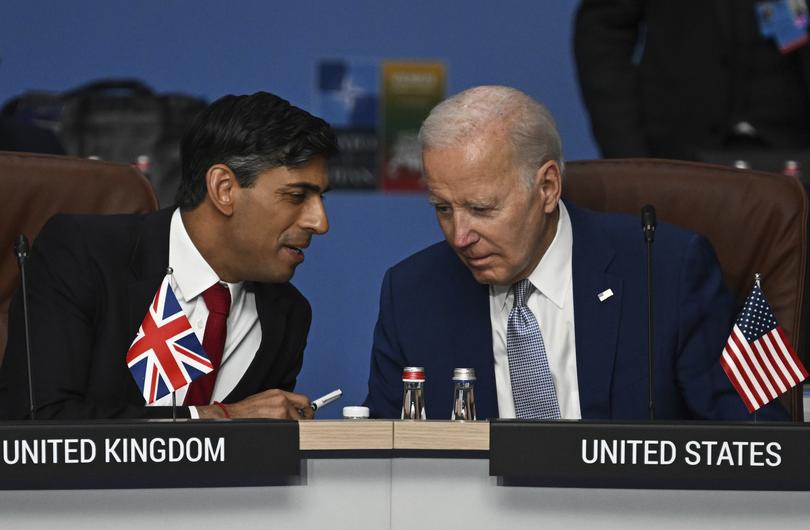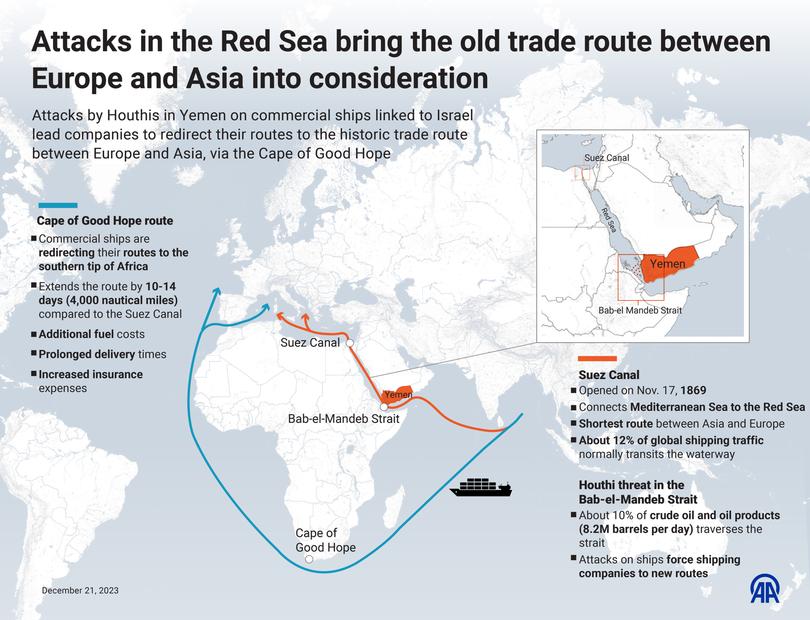Australia involved in coalition airstrikes on Yemen over raids by Houthi Rebels in Red Sea
Joe Biden has confirmed Australia supported the American-led airstrikes on Houthi rebel targets in Yemen. It is a major escalation of the Red Sea conflict.

Australia supported American-led airstrikes on Houthi rebel targets in Yemen in a major escalation of the Red Sea conflict, US President Joe Biden has confirmed.
“Today, at my direction, US military forces — together with the United Kingdom and with support from Australia, Bahrain, Canada, and the Netherlands — successfully conducted strikes against a number of targets in Yemen used by Houthi rebels to endanger freedom of navigation in one of the world’s most vital waterways,” Mr Biden said in a statement.
Mr Biden said the strikes were in “direct response” to “unprecedented” Houthi rebel attacks on international shipping vessels in the Red Sea.
Sign up to The Nightly's newsletters.
Get the first look at the digital newspaper, curated daily stories and breaking headlines delivered to your inbox.
By continuing you agree to our Terms and Privacy Policy.“These attacks have endangered US personnel, civilian mariners, and our partners, jeopardised trade, and threatened freedom of navigation,” he said.

The Federal Government considered a request from the US to deploy a Royal Australian Navy warship to the region in December but instead sent extra Australian Defence Force personnel to help with security efforts.
Iranian-backed Houthi rebels have been targeting ships in the Red Sea in an attempt to force Israel to stop its war on Gaza.
More than 50 nations had been affected in some 27 separate attacks, Mr Biden said, with crew from more than 20 countries threatened or taken hostage in acts of piracy.
British and US forces this week repelled the rebels’ largest assault yet, shooting down missiles and drones aimed at cargo ships in the trade route.
The United Nations Security Council has since passed a resolution demanding an immediate stop to attacks which it said “impede global commerce and navigational rights and freedoms as well as regional peace”.
“Today’s action demonstrated a shared commitment to freedom of navigation, international commerce, and defending the lives of mariners from illegal and unjustifiable attacks,” the involved countries — which also includes New Zealand, Germany and the Republic of Korea — said in a joint statement.
“Our aim remains to de-escalate tensions and restore stability in the Red Sea, but let our message be clear — we will not hesitate to defend lives and protect the free flow of commerce in one of the world’s most critical waterways in the face of continued threats.”
News of Australia’s support for the US airstrikes come after Prime Minister Anthony Albanese urged Iran to “stop meddling” in the Middle East conflict.
“Iran is playing a very destructive role in the region,” he said.

They took place hours after Secretary of State Antony Blinken wrapped up a multi-nation trip through the Middle East that was aimed in part at getting support for more aggressive action toward the Houthis, as he insisted “there will have to be consequences” if the attacks at sea persisted. Earlier Thursday, the Houthis fired a ballistic missile in the Gulf of Aden, in what US officials said was the 27th attack on commercial shipping by the group since November 19.
Thursday night’s action marks a significant escalation in the weeks since Hamas militants attacked Israel on October 7, and Israeli forces responded with a devastating air and ground campaign in the Gaza Strip. The Houthis began their harassment of commercial vessels soon after and have vowed not to let up until Israel ends its assault on Gaza.
Oil climbed after someone familiar with the matter said earlier that UK Prime Minister Rishi Sunak authorized military strikes with the US. West Texas Intermediate rallied as much as 1.6% at the open to trade above $73 a barrel.
Iran raised the stakes even more on Thursday when its Navy captured an oil tanker off the coast of Oman. That incident brings Iran more directly into the shipping turmoil that’s gripped the Middle East.
The strikes also embroil the US in yet another fight with an Iranian proxy after US forces launched attacks in Syria and Iraq in recent weeks in a bid to quash Iranian-supported militias that had launched drones and missiles at US bases — so far without significant casualties.
Deterring the Houthis for good won’t be easy. The group, which took control of the Yemeni capital, Sana’a, in 2014, has successfully withstood a Saudi Arabia-led military campaign to oust it that began a year later and remains firmly entrenched. Previous efforts to deter attacks have also failed. Late last month, the US spearheaded the creation of a maritime task force — dubbed Operation Prosperity Guardian — whose goal was to provide security for vessels transiting the Red Sea.
In a televised speech earlier Thursday, Houthi leader Abdul Malik Al-Houthi vowed a “big” response to the US and its allies if they proceeded with military action against his group.
“We’ll confront the American aggression,” he said. “Any American attack won’t go unpunished.”

On Wednesday, the former commander of US Central Command, Frank McKenzie, said the attacks could result in an escalatory spiral with the Houthis. Still, residual actions would be limited to that region.
“I don’t think you’d see Iran launch against Israel with the missiles that they could fire or do something significant against our forces” in the region, he said.
The Houthi action in the Red Sea had prompted many commercial shippers to direct their vessels around the southern tip of Africa rather than risk more Houthi attacks. That’s increased shipping times and threatened to snarl supply chains.
But the airstrikes are also a gamble for the US, which has repeatedly said a top priority amid the Israel-Hamas fighting is to keep the conflict from spreading into a more extensive regional war. And it went ahead despite concerns from Qatar, Saudi Arabia and other nations in the region that strikes would only further inflame tensions.
The US had been debating whether to attack the Houthis for weeks. A key challenge had been finding a way to diminish the group’s ability to menace shipping while avoiding further expansion of the conflict, according to a UK official familiar with the conversations.
